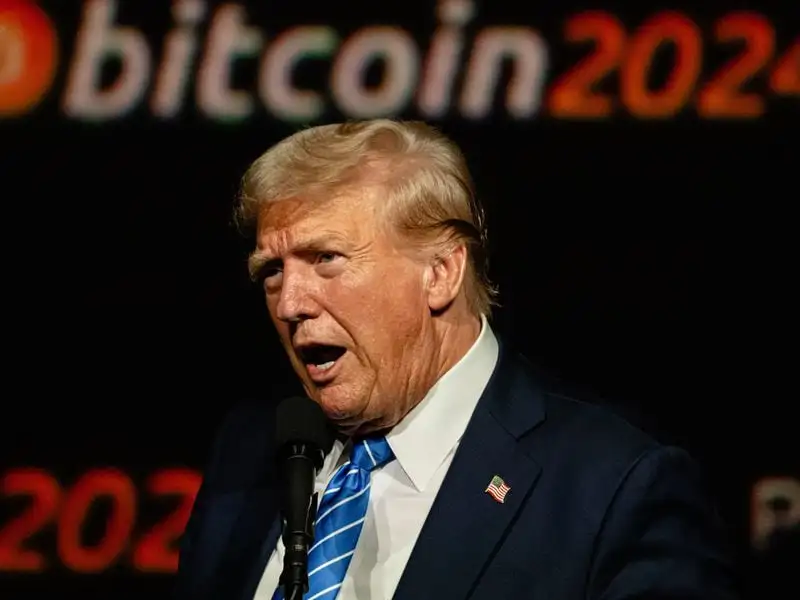
Businessicy – “Never sell your bitcoin,” Donald Trump declared to an enthusiastic audience at a cryptocurrency convention in Nashville, Tennessee, in late July. The Republican presidential candidate’s address was part of his strategy to attract crypto-oriented voters ahead of the November election. Included several campaign pledges, notably a proposal for a federal bitcoin reserve. “If elected, my administration will adopt a policy of retaining 100% of all the bitcoin currently held or acquired by the U.S. government,” Trump stated, describing the assets as the “foundation of a strategic national bitcoin reserve.”
Trump is not alone in suggesting such a plan. U.S. Senator Cynthia Lummis has put forward a proposal for the U.S. government to acquire one million bitcoins, approximately 5% of the total supply. While independent candidate Robert F. Kennedy Jr. has proposed a government reserve of four million btc. The potential uses of a strategic reserve, its feasibility. And its impact on the broader crypto market remain subjects of debate.
The U.S. government possesses a substantial cryptocurrency reserve, valued at around $11.1 billion, including 203,239 bitcoins, according to Arkham Intelligence. This stash primarily consists of assets seized from criminal activities, including the Silk Road marketplace, which authorities dismantled in 2013.
At present, the U.S. holds about 1% of the global bitcoin supply. Which totals approximately 19.7 million tokens, as reported by Blockchain.com. Bitcoin’s maximum supply is capped at 21 million coins.For comparison, major non-state holders include Michael Saylor’s MicroStrategy, which owns about 226,500 bitcoins according to its second-quarter results. BlackRock’s iShares Bitcoin Trust and Grayscale Bitcoin Trust hold 344,070 and 240,140 bitcoins, respectively, based on data from BitcoinTreasuries. A government reserve could potentially influence bitcoin’s price positively. Other countries also hold significant bitcoin reserves, with China being the second-largest government holder, possessing 190,000 coins according to BitcoinTreasuries.
“It would likely boost the price. We’ve never seen a commodity with such a restricted supply, even in digital form, become a state reserve asset,” said Mark Connors, head of global macro at Onramp Bitcoin. However, a reserve could also limit the number of bitcoins available for trading and might expose investors if the government decides to sell part of its holdings. “RFK proposed holding 19% of the total bitcoin supply, similar to the gold supply. I doubt many bitcoin enthusiasts would support that,” Connors added.
“Japanese Stocks Rebound Sharply as Global Markets Stabilize Amid Fed Reassurances“
Although the exact nature of a national bitcoin reserve remains unclear, observers are speculating on its potential structure. Connors suggested that the Federal Reserve might manage the reserves for the Treasury Department, akin to its role with gold. Conversely, Frank Kelly, senior political strategist at asset manager DWS Group, proposed that the reserve could function similarly to the Strategic Petroleum Reserve, involving both presidential and congressional oversight. “There’s a lot to sort out,” Kelly noted.
Many bitcoin purists find it inherently ironic that the digital asset, which aims to be decentralized and independent of government control, is becoming part of a state reserve. Despite the uncertainties surrounding a bitcoin reserve, many in the crypto community are pleased to see digital assets becoming a prominent issue in political discourse.
“The industry perceives that both major parties are increasingly focusing on digital assets,” observed Raoul Mewawalla, CEO of Mawson Infrastructure Group, which operates bitcoin mining data centers. “We expect this trend to continue after November.”“The Complete Information From Wikipedia About Donald Trump”